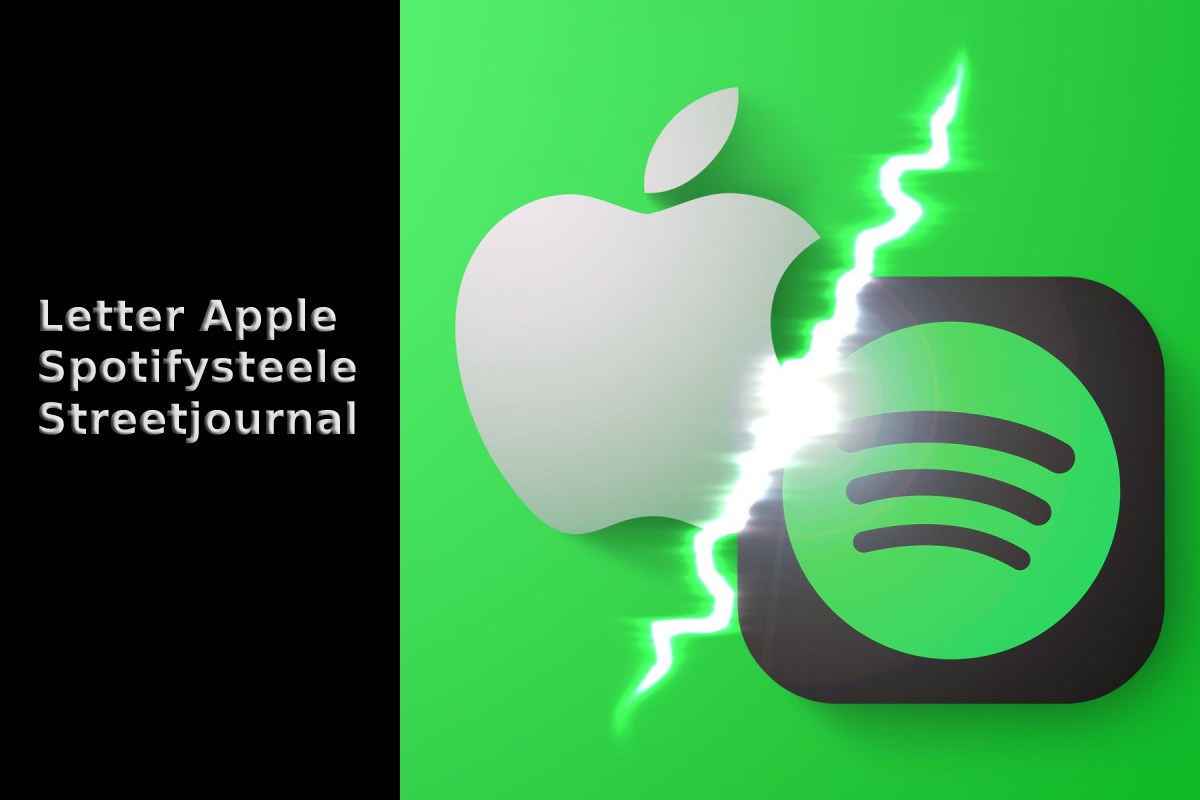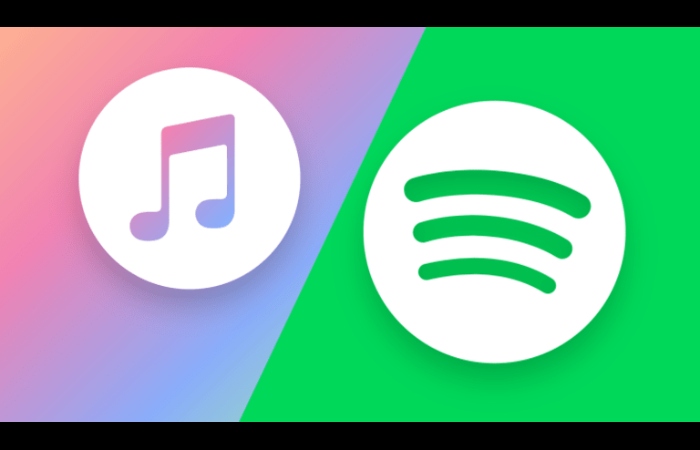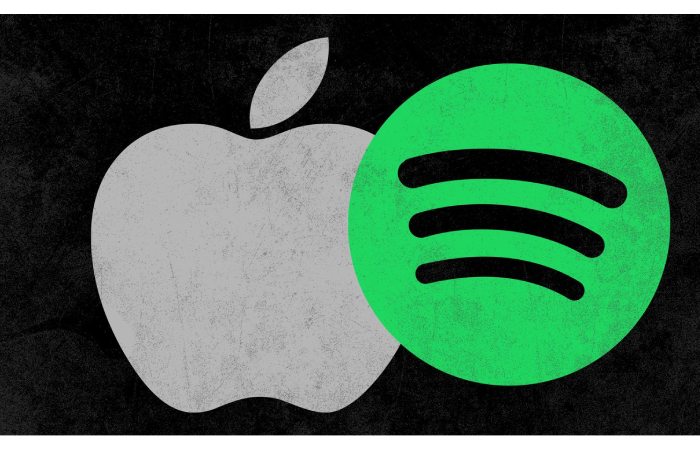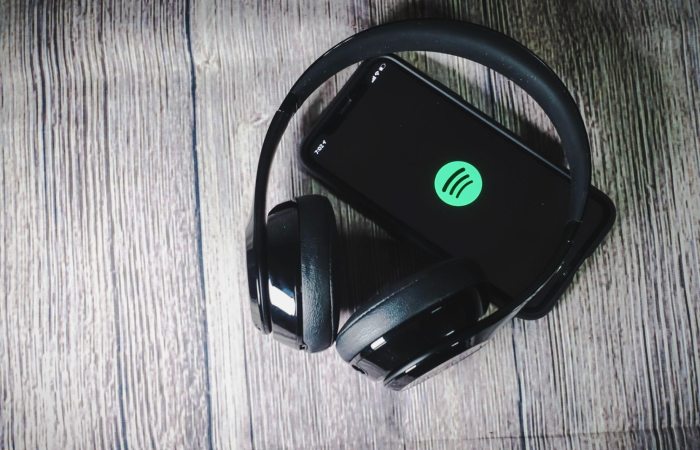Introduction
The Letter Apple Spotifysteele Streetjournal – Written by Apple CEO Tim Cook to the Wall Street Journal has caused a stir in the business and technology world. In it, he criticized Spotify’s practices and accused them of not paying artists fairly.
This letter has to open up a debate on the fairness of streaming services and how they should be regulated. It also highlighted the importance of intellectual property rights for musicians and other content creators. This letter will have far-reaching implications for the music industry and also other creative industries in the future.
The letter from Apple to Spotify and Steele Street Journal has been discussed among many people since its release in 2019. The letter addressed Apple’s issues with Spotify and Steele Street Journal, ranging from using Apple’s App Store to their data collection practices. According to the information on the website wsj.com
In this article, we will discuss the letter in detail and examine its implications for the future of the App Store and data collection practices. We will also explore the use cases of AI writing tools that could have been used to craft such a powerful document. Finally, we will look at how this letter could shape the future of copywriting in general.
An Overview of the Apple-Spotify Battle over Podcasts
The Apple-Spotify battle over podcasts has been a hot topic in media and entertainment lately. It began with Spotify’s announcement of its acquisition of podcast network Gimlet Media, followed by Apple’s response with its purchase of the popular podcast app, Anchor. Both companies compete for exclusive content and market share in the rapidly growing podcast industry. This post will deliver an overview of the battle between Apple and Spotify over podcasts, including the implications for companies and the industry.
What is in the Letter Apple Spotifysteele Streetjournal?
In a letter to artists, Apple says it pays a penny per stream, roughly double Spotify, which pays an average of about six cents per stream.
Apple Music pays artists a penny per stream, according to a letter from Apple to artists obtained by The Wall Street Journal. This is roughly double what Spotify pays, which pays an average of about six cents per stream.
The letter, which was sent to artists on Monday, also said that Apple Music has paid out more than $2 billion to artists since it launched in 2015.
Apple’s higher royalty rate is likely due to the fact that it has a lesser market share than Spotify. As of March 2023, Apple Music had a 15% market share, while Spotify had a 35% market share.
The higher royalty rate is also likely a way for Apple to attract more artists to its platform. Recent years, there has been a growing movement among artists to boycott Spotify due to its low royalty rates.
Spotify has defended its royalty rates, saying that they are fair and that they allow the company to offer a low-cost subscription service.
The letter from Apple is the latest development in the ongoing battle between Apple and Spotify over royalties. In 2021, Spotify filed a lawsuit against Apple, alleging that Apple had abused its market power to stifle competition in the music streaming market.
The case is still ongoing.
What is the Steele Street Journal Letter and How Does it Affect the Music Streaming Industry?
The Steele Street Journal Letter has become a significant talking point in the music streaming industry. Written by Apple CEO Tim Cook, it has sparked a debate about the fairness of the current streaming model and how it affects artists and labels.
By examining the letter, its implications, and how it affects Spotify and also Apple Music, we can gain insight into the future of music streaming.
Analysis of Apple and Spotify’s Message in the Steele Street Journal Letter
Apple and Spotify have recently made headlines with their joint letter to the Steele Street Journal. In this letter, they discussed the issues of streaming music services and also how they impact both companies.
This post aims to analyze Apple and Spotify’s message in their letter to the Steele Street Journal and discuss its implications for both companies. We will also explore how this message could affect other streaming music services in the future. Finally, we will consider what steps each company might take to address these issues.
Apple and Spotify’s Plans to Change Music Streaming with the Steele Street Journal Letter
Apple and Spotify recently collaborated to send a joint letter to the Steele Street Journal, outlining their plans to revolutionize music streaming. The letter detailed how the two companies plan to work organized to create a more equitable and transparent music streaming industry for artists and fans alike.
This letter has been met with much enthusiasm from both sides of the music streaming industry, as it promises a better future for all involved. With this new partnership, Apple and also Spotify aim to create an environment where musicians can be fairly compensated for their work while fans enjoy high-quality music without breaking the bank. This article will explore how Apple and Spotify’s plans outlined in the Steele Street Journal Letter could change music streaming forever.
Responses from Other Streaming Services to the Steele Street Journal Letter
Recently, the Steele Street Journal published an open letter to Apple and Spotify calling for more transparency in their streaming services. This has led to a flurry of responses from other streaming services, which have attempted to position themselves as more transparent and also accountable alternatives. In this post, we will discover the various responses from other streaming services to the Steele Street Journal letter and how they attempt to differentiate themselves in a crowded market.
Conclusion
The Letter Apple Spotifysteele Streetjournal, Apple-Spotify war has been ongoing, and the two tech giants are vying for dominance in the streaming music industry. With Apple’s acquisition of Beats Music, they have a powerful weapon in their arsenal, and also Spotify is fighting back with its subscription services. This battle will have a significant impact on listeners and podcasters alike. This article will discuss how this war will play out for both parties involved and the future of streaming music.




